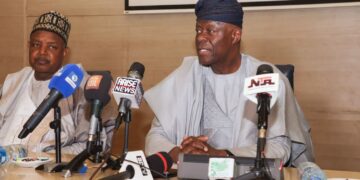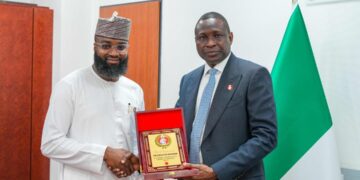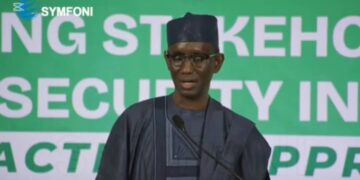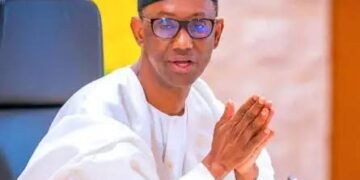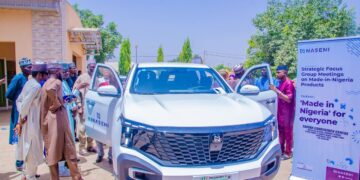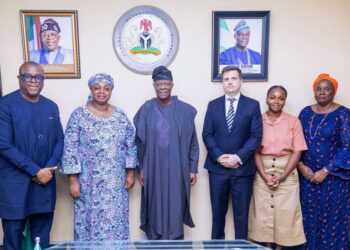As the Federal Government kick starts the implementation of the National Economic Sustainability Plan (NESP), a move from the international community to support the successful execution of programmes encapsulated in the plan is welcomed and appreciated.
Vice President Yemi Osinbajo, SAN, conveyed this appreciation at a virtual meeting held earlier today with some representatives of the international community from the United States (US), the European Union (EU), United Kingdom (UK), agencies of the United Nations, World Bank and the International Monetary Fund (IMF).
The Industry, Trade and Investment Minister, Otunba Niyi Adebayo, a member of the Economic Sustainability Committee which wrote the ESP was also in attendance.
Prof. Osinbajo who applauded the commitment of the international community to support Nigeria’s response to the COVID-19 pandemic also noted that the country will take advantage of the crisis to effect significant changes in the critical sectors of the Nigerian economy.
According to him, “I thank you for your generous comments about the Economic Sustainability Plan. We intend to implement that Plan as closely as possible. We hope that when we get to some of the more technical aspects and full implementation, we will then be able to work with you and see in what areas you will be in the position to assist.
“We also look at the pandemic and post-pandemic period as a time when we can make some useful changes. We really are working towards ensuring that we take full advantage of the crisis. There is no question at all as to our determination to ensure that we are able to quickly surmount the challenges.
The Vice President also restated to the delegation the government’s condolences on the recent killing of five aid workers on Wednesday in Borno State by Boko Haram insurgents.
Earlier in his remarks, the Resident and Humanitarian Coordinator of the United Nations System in Nigeria, Mr Edward Kallon who led the delegation said Nigeria’s response to the pandemic is well planned and articulated, noting that interactions between the Federal government and stakeholders would aid a smooth implementation of the plan.
Kallon and other members of the delegation commended the development and approval of the Economic Sustainability Plan, offering to assist in its implementation.
According to Kallon “we want to support the vision of (Nigerian) government in its response to the COVID-19 pandemic and the Economic Sustainability Plan gives us the opportunity.”
He added that members of the delegation will see how the international community can support the Nigerian government “with what you are doing.”
Kallon disclosed that the delegation want to ensure there is an international alignment in support of the Nigerian government’s response.
Aside the Resident and Humanitarian Coordinator of the United Nations System in Nigeria, other representatives of foreign governments and international agencies at the meeting include Ambassador Mary Beth Leonard, the United States Ambassador to Nigeria; Ambassador Ketil Karlsen, Head of the European Union Delegation to Nigeria and ECOWAS; Ambassador Catriona Laing, the British High Commissioner to Nigeria represented by Mr John Primrose, the Acting British High Commissioner to Nigeria; Mr Chris Pycroft, Head of the Department for International Development (DFID) in Nigeria; and Mr Mohamed Yahya, Resident Representative of the United Nations Development Programme (UNDP) in Nigeria.
Others include, Mr Kurt Cornelis, Head of Cooperation, European Union Delegation to Nigeria and ECOWAS; Mr Shubham Chaudhuri, the Country Director of the World Bank in Nigeria; Ms Jesmin Rahman, Resident Representative and Chief of Mission, International Monetary Fund (IMF) in Nigeria, among others.


